wikiHow is a “wiki,” similar to Wikipedia, which means that many of our articles are co-written by multiple authors. To create this article, volunteer authors worked to edit and improve it over time.
There are 9 references cited in this article, which can be found at the bottom of the page.
This article has been viewed 22,410 times.
Learn more...
Many children continue to wet the bed long after they have mastered staying dry during the daytime. Until age six, in fact, most experts characterize bedwetting (also called nocturnal enuresis) as normal and acceptable; even after age six, more than ten percent of children continue to struggle with the issue. Fortunately, there are ways to help your child learn to stay dry.
Steps
Giving Up Diapers
-
1Wait until your child is ready. Your child may have mastered staying dry during the day, but that does not mean that he or she will be ready to stay dry at night. For most children, it’s fine to keep them in diapers (or pull-up style disposable underwear) until they start waking up dry most mornings.[1]
- Understand that developmentally, each child is different. Some children can stay dry at night during the toddler years; others are still having accidents at age six or beyond. Try not to compare your son or daughter to other children.
-
2Buy a waterproof mattress cover. Once you decide to give up nighttime diapers, you’ll want to prepare for the inevitable accidents. Get a waterproof cover to put under the sheets but above the mattress, to protect it from damage.[2]Advertisement
-
3Keep spare linens and pajamas close at hand. When your child has an accident in the middle of the night, it’s helpful to have clean sheets and pajamas nearby. That way, you can simply remove the soiled sheets, wipe the waterproof cover with a cloth, put clean sheets on the bed, and help your child change into fresh sleepwear.
- As your child gets older, you may want to enlist his or her help in this routine. Most preschoolers can remove soiled sheets, put on clean pajamas, and help you put clean linens on the bed.
-
4Maintain a relaxed attitude. Accidents will happen – and, indeed, they may happen very frequently at first – and it’s important that you support your child and take them in stride. Tell your child that learning to stay dry at night is a process and that it’s okay if it takes some time.[3]
Maximizing the Odds of a Dry Night
-
1Limit liquids before bedtime. Let your child drink plenty of fluids during the day, and make sure he or she drinks a glass of water with dinner, but try to avoid liquids after that.[4]
- Take special care to avoid caffeinated drinks (like sodas). These can increase the production of urine.
-
2Visit the bathroom right before bed. Encourage your child to empty his or her bladder immediately before bedtime. This will reduce the likelihood of a full bladder overnight.[5]
-
3Stick to a bedtime routine. Overcoming bedwetting is often a matter of agreement between the bladder and the brain; make this possible by sticking to a routine so that your child’s body “learns” to hold urine during specified times.[6]
-
4Pay attention to what your child eats. Certain foods may cause allergic reactions in your child, even if they do not produce a rash or other external signs, or may irritate the bladder or otherwise increase the odds of an accident. If your child is struggling to stay dry at night, consider keeping a food journal and noting any correlation between certain foods and nighttime accidents.[7]
- Particular culprits seem to be salty snacks, sugary drinks, spicy and acidic foods, which can irritate the bladder, and milk and other dairy products, which can cause sleepiness and make it harder to wake up when the bladder is full.
-
5Make sure your child gets enough calcium and magnesium. Some experts believe low levels of calcium and magnesium may contribute to bedwetting. In addition to dairy products, calcium and magnesium are found in bananas, sesame seeds, beans, fish, almonds, and broccoli.[8]
-
6Consider waking your child during the night. Until your child learns to wake up and go to the bathroom when his or her bladder is full, you might set an alarm and interrupt his or her sleep purposefully. You can start by waking your child up every two or three hours and extend this period gradually over time, until your child is sleeping through the entire night and waking up dry.
-
7Avoid cold. Feeling cold can increase the need to urinate, so make sure your child is warm enough while sleeping.
-
8Keep a diary. If your child continues to struggle with bedwetting, keep a detailed journal of his or her accidents, including their timing. You may notice patterns, which will make it easier to pinpoint causes and wake your child at an appropriate time to prevent accidents.[9]
-
9Use positive reinforcement. Never punish a child for bedwetting, which may very well be completely out of his or her control. Instead, stick to praise and positive reinforcement for dry nights.[10]
Taking Additional Measures for Prolonged Bedwetting
-
1Give warm saltwater baths. Have your child take a bath with 500 grams of salt dissolved in the water before bed. Minerals from the saltwater may reduce infection, strengthen the immune system, and detoxify the body. This step might be useful if your child has a tendency to develop bladder infections.
- Ideally, the temperature of the water should be about body temperature: 98.6 degrees Fahrenheit or 37 degrees Celsius.
-
2Offer your child tea made with parsley. Add fresh or dried parsley to boiling water; let it stand for five to ten minutes, then strain it, add a few drops of lemon, and stir in a teaspoon of honey. Parsley tea guards against urinary tract infections and supplies calcium and magnesium. Only offer the tea in the mornings, though; it could increase urination and lead to more accidents at nighttime.
-
3Try cornsilk tea. Allow cornsilk to dry for several days, then make a tea by covering it with boiling water and letting it stand for ten minutes. Cornsilk tea may strengthen the muscles of the bladder and remove toxins from it. Again, offer the tea only in the mornings, as drinking it at night could cause more accidents.
-
4Consider oat tea. Boil oats in a liter of cold water, then let the tea sit for an hour before straining and drinking. Oats are rich in calcium and magnesium. As with other teas, offer oat tea to your child only in the mornings.
-
5Know when to see a doctor. Bedwetting is usually normal and does not typically need to be addressed by a physician. However:[11]
- See a pediatrician if your child is older than seven years old and still wetting the bed. A pediatrician can help rule out other causes (including urinary tract and bladder infections) and give you advice for helping your child stay dry.
- See a pediatrician if your child is older than five years old and still having accidents during the daytime as well as at night. By five years old, most children should be able to control urination. If yours can’t yet, see a pediatrician to rule out physical causes and get advice for treatment, but be aware that this problem can be genetic: you may simply have to wait it out.
- See a pediatrician and/or a child psychologist if your child begins to wet the bed again after a long period of dry nights. Under these circumstances, bedwetting may be linked to trauma or stress: the death of someone close to the child, divorce of his or her parents, the arrival of a new baby, or anything else frightening or disruptive.
Community Q&A
-
QuestionWhat if the child is not responding to the treatment?
 Community AnswerTreatments like these don't always work for everyone, but if they haven't got any better, or gotten worse at controlling it, you should go to a doctor for further recommendations.
Community AnswerTreatments like these don't always work for everyone, but if they haven't got any better, or gotten worse at controlling it, you should go to a doctor for further recommendations. -
QuestionWhat if they refuse my help?
 RtaoCommunity AnswerAsk for a reason why they are refusing your help. They may be embarrassed to admit that they are wetting the bed. Reassure them that you are only trying to help fix their current habits. Be careful, as this can be a very sensitive topic.
RtaoCommunity AnswerAsk for a reason why they are refusing your help. They may be embarrassed to admit that they are wetting the bed. Reassure them that you are only trying to help fix their current habits. Be careful, as this can be a very sensitive topic. -
QuestionI am 10 and still wet the bed. How can I stop?
 Alexis VasconcelosCommunity AnswerMake sure you are using the bathroom before bed and try staying away from liquids at least two hours before bedtime. Setting an alarm and getting up to pee in the middle of the night can help, too.
Alexis VasconcelosCommunity AnswerMake sure you are using the bathroom before bed and try staying away from liquids at least two hours before bedtime. Setting an alarm and getting up to pee in the middle of the night can help, too.
References
- ↑ https://www.webmd.com/children/guide/bed-wetting-urinary-incontinence-children
- ↑ https://www.nhs.uk/conditions/bedwetting/
- ↑ https://www.eric.org.uk/why-do-children-wet-the-bed
- ↑ https://www.webmd.com/children/guide/bed-wetting-urinary-incontinence-children
- ↑ https://www.nhs.uk/conditions/bedwetting/
- ↑ https://familydoctor.org/enuresis-bed-wetting/
- ↑ https://www.healthychildren.org/English/health-issues/conditions/genitourinary-tract/Pages/Nocturnal-Enuresis-in-Teens.aspx
- ↑ https://www.ncbi.nlm.nih.gov/pmc/articles/PMC3391829/
- ↑ https://health.ucdavis.edu/children/patients_family_resources/bedwetting-solutions.html
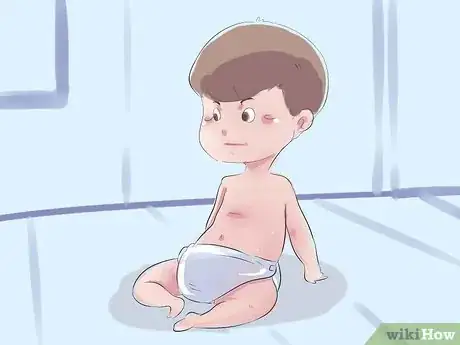
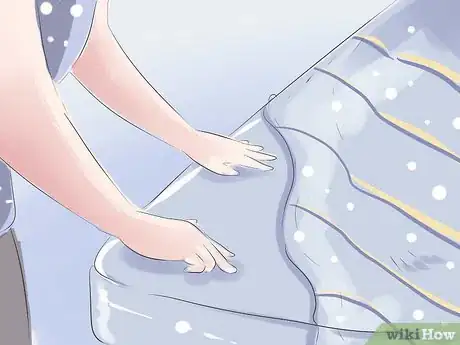
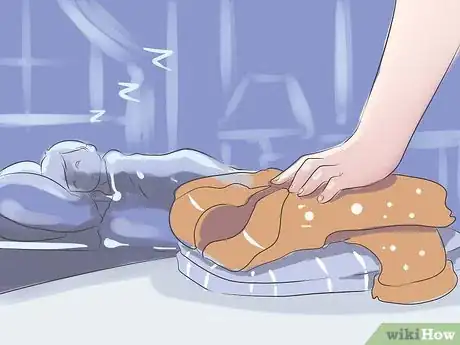
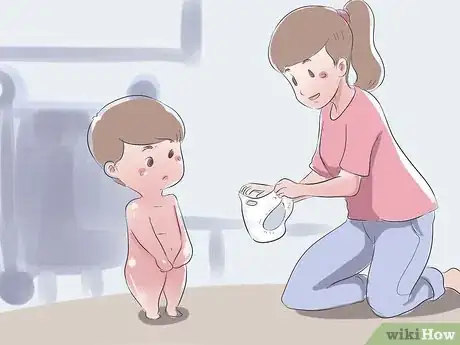


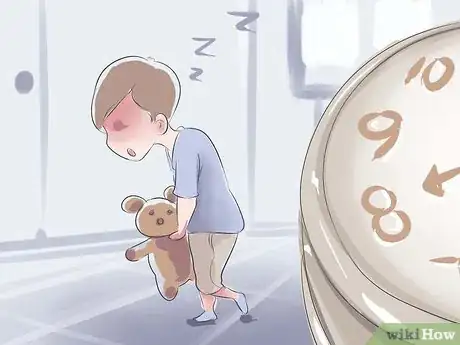
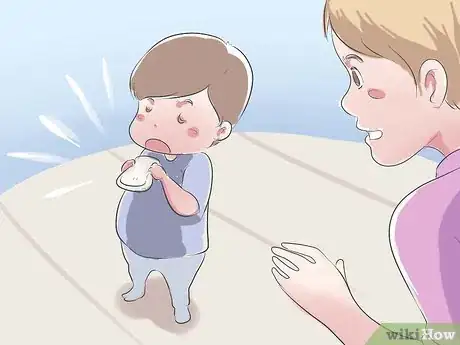

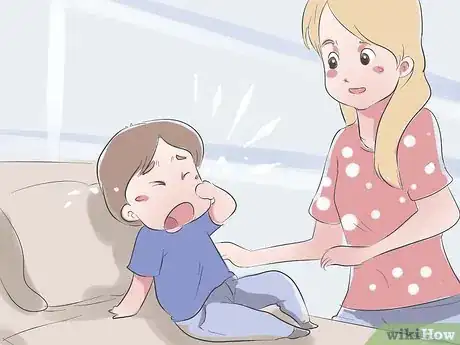
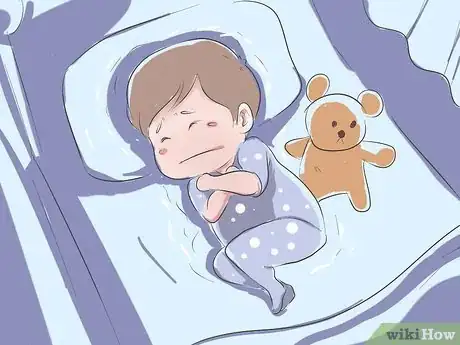


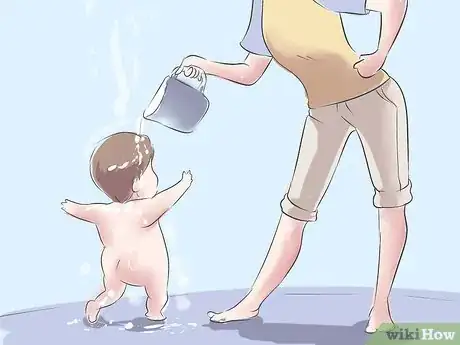
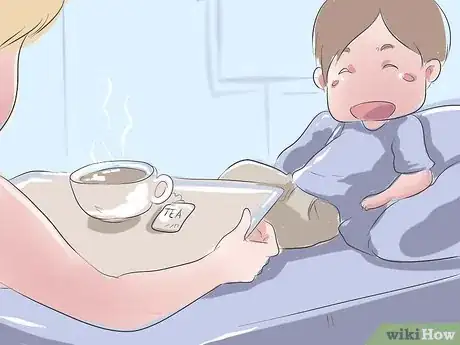

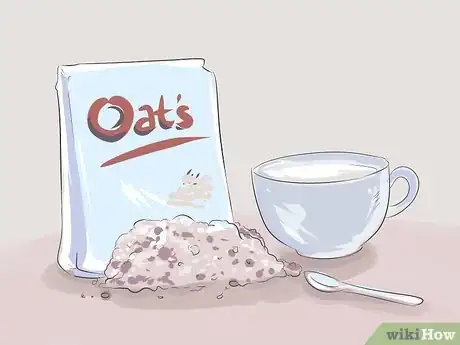




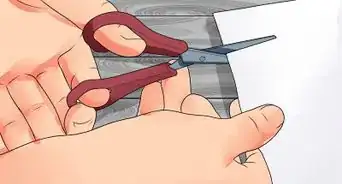




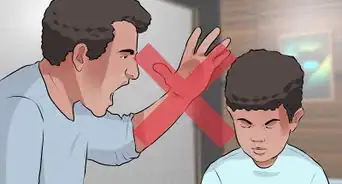











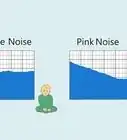


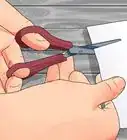



































Medical Disclaimer
The content of this article is not intended to be a substitute for professional medical advice, examination, diagnosis, or treatment. You should always contact your doctor or other qualified healthcare professional before starting, changing, or stopping any kind of health treatment.
Read More...